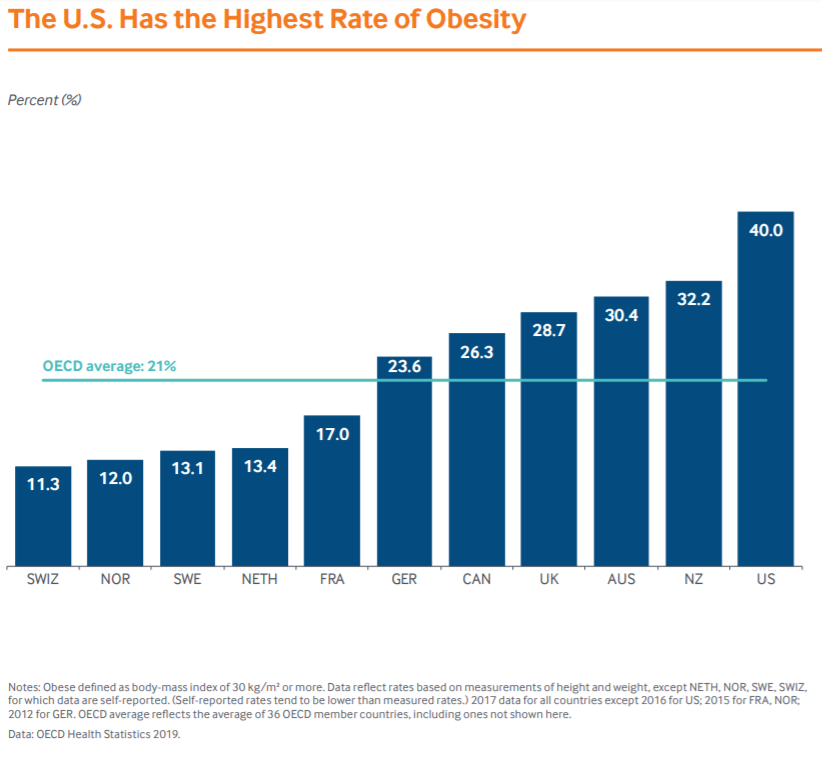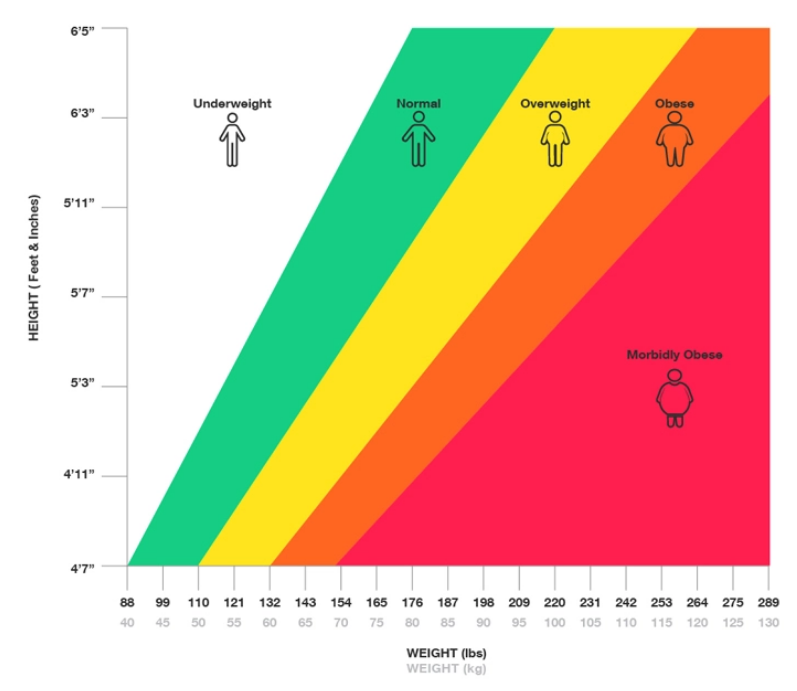Hello everyone Floyd Meyer here I am a Physician Assistant with a Master’s in public health, a degree in molecular biology, and I am currently working in physical medicine and rehabilitation. Today we are continuing our series on Resilience which is the ability to remain well, recover, or even thrive in the face of adversity.
This week we are going to begin our discussion of nutrition and resilience and why nutrition is more important than ever post COVID.
Everyone knows that maintaining a healthy weight will decrease your risk of multiple diseases. But most of those diseases are chronic and tend to take decades for any symptoms to appear. That’s one reason why so many people discount the effects of being overweight and obese, because they don’t notice the consequences until they have been overweight or obese for many years.
But now with COVID spreading throughout the United States being overweight and obese can cause serious consequences right now.
In fact, multiple studies have now been published showing an increased requirement of intensive care in individuals with obesity, meaning they have a BMI greater than 30, and this effect is present even in young “healthy” people who are obese.
One such article posted in Clinical Infectious Disease looked at data from COVID positive patients who presented to a hospital in NYC. They showed that those individuals with a BMI of greater than 30 were more than 2 times more likely to be admitted to acute and critical care, respectively, compared to individuals with a BMI < 30. (Lighter et al., 2020) Another study showed that over 77% of nearly 17,000 individuals who were hospitalized with COVID were overweight or obese. (Rizzo et al., 2020)
This is a big reason why the United States has been hit so hard. The U.S has the highest rate of Obesity compared to all other major nations on earth. The most recent data shows that over 40% of US adults are obese. Over 40%! That means almost half of the adults in the United States have a BMI greater than 30.

BMI is a person’s weight in kilograms divided by the square of their height in metres (kg/m²). While it’s far from perfect as a measure for an individual person, BMI is very useful in comparing health status when looking from a population level or comparing groups.

So for those of us who are overweight or obese where should we start? Should we starve ourselves or crash diet to lose the weight quickly?
Thankfully the answer is no. Rapid weight loss is not only ineffective in the long run, but it actually can lower your immune function putting you at higher risk of illness. What I generally recommend is to start with portion sizes.
Using a portion control guide like the one made by Precision Nutrition can take all the guess work out of meal planning and removes the barrier of calorie counting!


As you can see in the graphic your portions are all guided by your hand size making it super easy to “measure” your meals. The nice thing is that generally hand size is going to be correlated with body size making your portions individualized to your body.
Now it’s important to note that this is simply a starting point. Your meal sizes may need to be increased or decreased depending on your individual metabolism, activity level, and current goals.
If after implementing these recommended portions for a period of time you still you wanted to lose weight you would generally start by decreasing the size of the carbohydrate and fat serving per meal. Then continue to adjust as necessary depending on your results and future goals.
We must do better. We cannot simply wait for a vaccine to save us while ignoring the elephant in the room which is a grossly unhealthy population.
As the world gets more interconnected and the population continues to increase these global pandemics are going to increase in severity and frequency.
The only legitimate solution is to improve the health of our citizens so that these infections do not result in severe illness or hospitalization.
In the coming weeks we are going to dive deeper into nutrition and its impact on resilience including micronutrient status, fasting, and hydration.
I hope that this has been helpful. If you have any questions please leave them in the comments below. If this resonated with you please share with your friends and family and subscribe and follow for more of this content. The time for action is now. Again this is Floyd Meyer. Have a great day!
References
Lighter, J., Phillips, M., Hochman, S., Sterling, S., Johnson, D., Francois, F., & Stachel, A. (2020). Obesity in patients younger than 60 years is a risk factor for Covid-19 hospital admission. Clinical Infectious Diseases. doi:10.1093/cid/ciaa415
Peng YD, Meng K, Guan HQ, et al. Zhonghua Xin Xue Guan Bing Za Zhi. 2020;48(0):E004. doi:10.3760/cma.j.cn112148-20200220-00105
Rizzo, S., Chawla, D., Zalocusky, K., Keebler, D., Chia, J., Lindsay, L., . . . Tsai, L. (2020). Descriptive epidemiology of 16,780 hospitalized COVID-19 patients in the United States. doi:10.1101/2020.07.17.20156265
Simonnet, A., Chetboun, M., Poissy, J., Raverdy, V., Noulette, J., … Duhamel, A. (2020). High prevalence of obesity in severe acute respiratory syndrome coronavirus-2 (SARS-CoV-2) requiring invasive mechanical ventilation. Obesity. doi:10.1002/oby.22831

